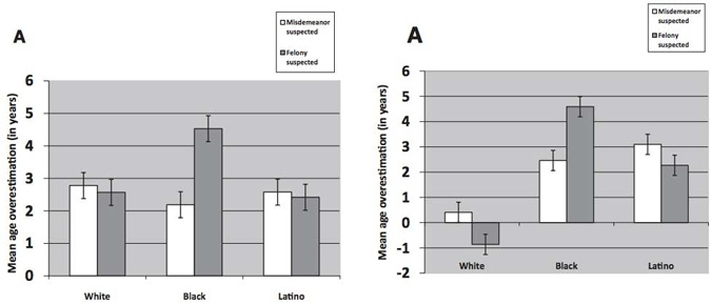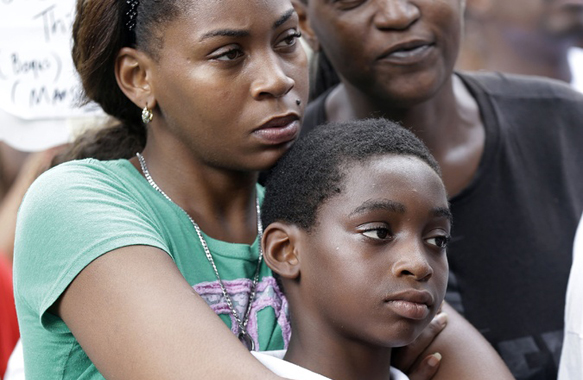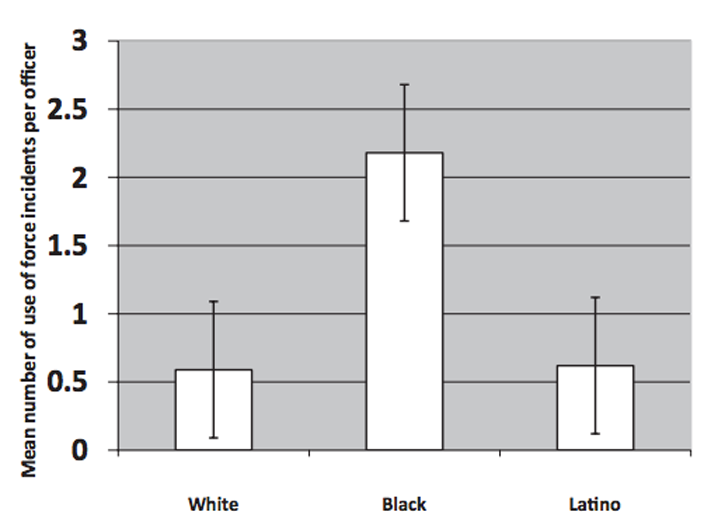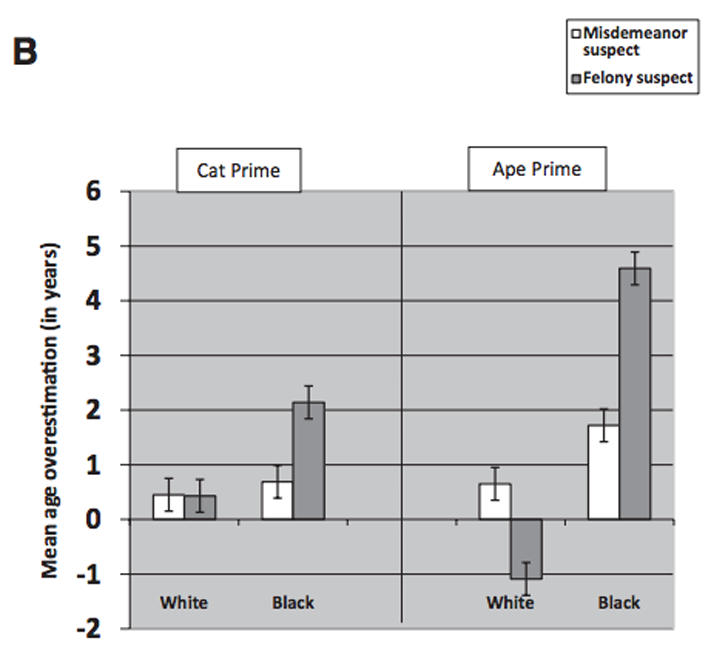By Philip Bump | Originally Published at The Wire. March 10, 2014 8:04PM ET
Asked to identify the age of a young boy that committed a felony, participants in a study routinely overestimated the age of black children far more than they did white kids. Worse: Cops did it, too.
The study, published in the Journal of Personality and Social Psychology, aimed at figuring out the extent to which black children were likely to be treated differently than their white peers solely based on race. More specifically, the authors wanted to figure out the extent to which black kids were dehumanized. “Children in most societies are considered to be in a distinct group with characteristics such as innocence and the need for protection,” author Phillip Atiba Goff of UCLA told the American Psychological Association. “Our research found that black boys can be seen as responsible for their actions at an age when white boys still benefit from the assumption that children are essentially innocent.”
The researchers ran four different experiments aimed at gauging how people perceived criminal acts (both misdemeanors and felonies) depending on if the boy that committed it was black or white. Participants took a series of tests gauging racial attitudes and subtle associations. One test “primed” participants by flashing the names of either great cats, like lions, or apes. Two groups of people were interviewed, college-aged students and police officers. The group of police officers were evaluated on another metric: their on-the-job record of use of force against criminal suspects.

The general population respondents overestimated the boys’ ages in felony situations by 4.53 years, meaning that “boys would be misperceived as legal adults at roughly the age of 13 and a half.” The police had a slightly wider spread: 4.59 years. The college students were also less likely to judge black boys innocent in the presented scenarios once they were 10 years of age of older. At every age level after 10, black boys were considered less innocent than either white or unspecified children.
The less the black kids were seen as human, the less they were granted “the assumption that children are essentially innocent.” And those officers who were more likely to dehumanize black suspects overlapped with those who used more force against them.
In 2012, data from the Department of Education revealed that black students were far more likely than white students to face harsh discipline following infractions at school than student of other races. That sort of uneven system of discipline prompted the Obama administration to call for zero-tolerance policies to be dropped. If this study is any guide — and it’s only one study, of course — the tendency to give white kids the presumption of innocence and youth that isn’t afforded to black students might be one of the reasons for that discrepancy.














Leave A Comment